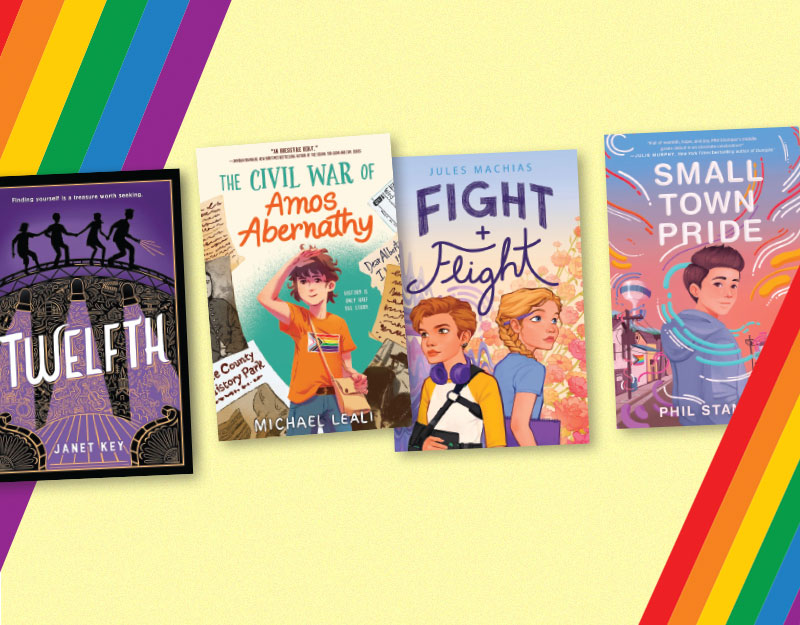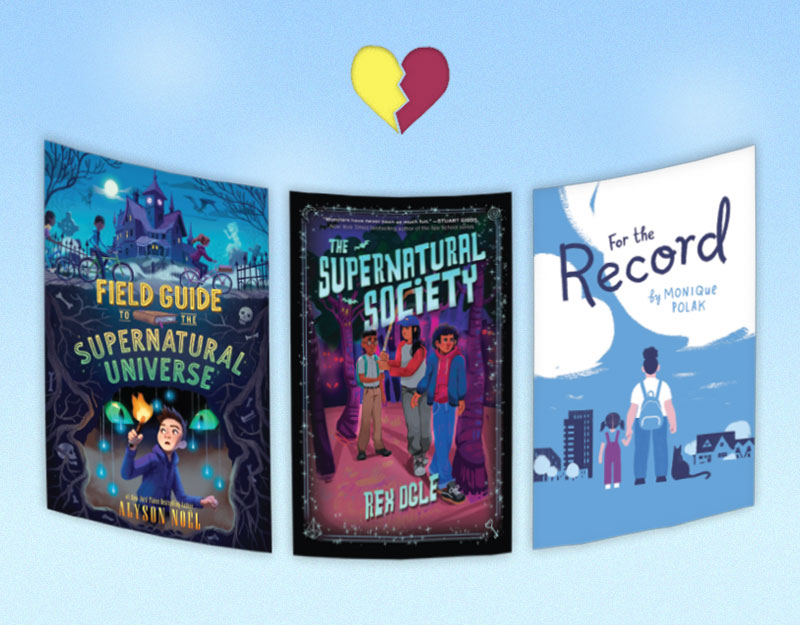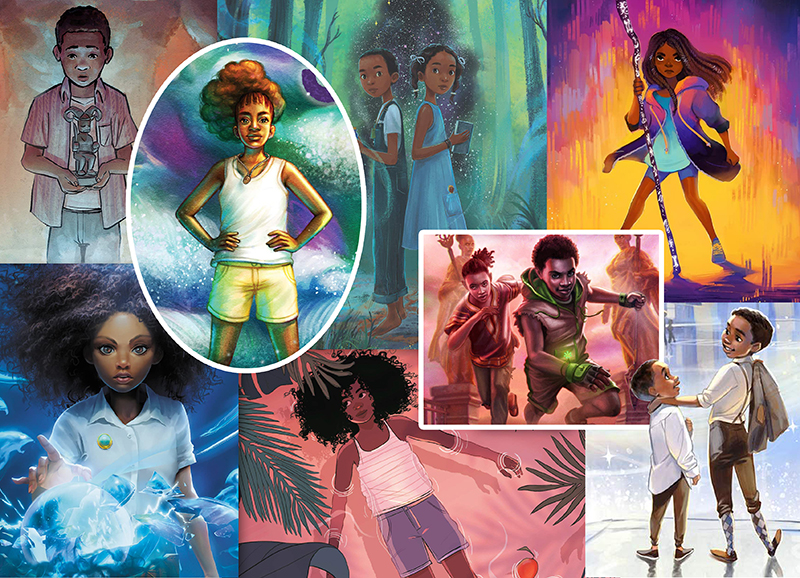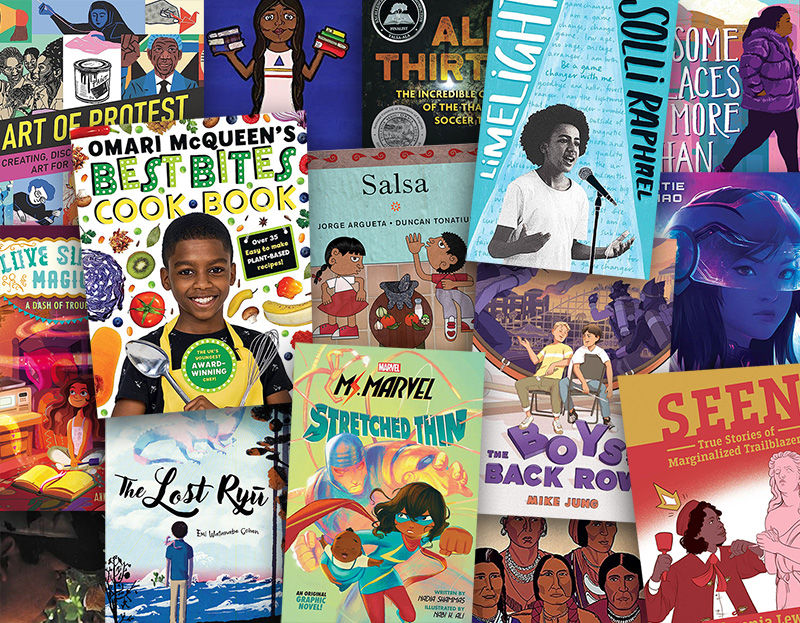The Roles We Play, a guest post by Z. R. Ellor
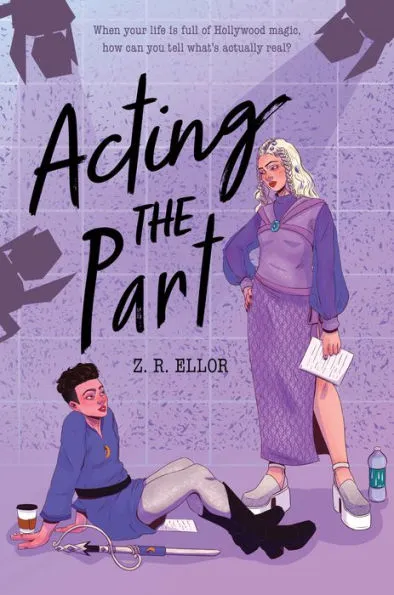
I’d always wanted to write a book about an actor.
Actually, I’d always wanted to be an actor. But that wasn’t exactly in the cards. As a middle-school drama teacher once told me, I don’t really disappear into a role. “I can always tell it’s you.” I’m sure plenty of queer people can relate to this—theater and the stage are safe spaces where you can pretend to be someone else. Where you don’t have to keep pretending to be the person everyone wants you to be.
Acting provides protection and a creative outlet to queer teens. It’s something I strongly recommend to anyone looking for an artistic pursuit—it’s a great way to build collaboration skills and make new friends. But it can also be a challenging place, especially where money and power are involved.
ADVERTISEMENT
ADVERTISEMENT
Lily, the main character in ACTING THE PART, thinks that, because they’re an actor on a popular sci-fi TV show, they’re in a safe space to express their queerness. They’re comfortable advocating for a chance to have their character be in a same-sex relationship, but when they learn that their character’s on-screen girlfriend is going to be killed off, they realize they need to stand up for themself.
And that’s where they hit a wall. The previously supportive showrunners, who write their on-screen story and control a big part of their life, push back. They have their own plans for the story, and they won’t listen to the people who work so hard to bring it to life. Lily might be a teen star, but at the end of the day, they’re still just an employee. Their job is to fit the role they play, both on-screen and off.
One of the hard things about transitioning is that you can’t hide behind playing a role any more. You become so much more of a person when you’re not bending every aspect of yourself to fit society’s conception of your gender role.
Lily is drawn to spaces where they can take on a different persona. They identify strongly with the courage of Morgantha, the character they play on a hit sci-fi TV show, and also with the character of Frey, their avatar in an MMORPG. Learning to stand up for themself is a large part of coming into their non-binary identity, but it also creates friction. Part of what they must come to terms with is they’re valued, not just for their skill as an actor, but because people expect them to go with the flow and let others make decisions for them. There is something uniquely painful in being rejected, not because of your trans identity, but because the person you are as a trans person is more forthright about expressing their needs and desires. You realize very quickly who in your life supports you as a person, and who only supports you for the role you play.
Since moving to LA, it’s increasingly occurred to me just how massive the forces Lily deals with are. Not even in a malicious way. The fictional show, Galaxy Spark, is a massive production, and like a lot of massive productions, it’s very hard to change its direction. Even when the showrunners appear to be open to Lily and their friends giving feedback on the plot, there’s a schedule they need to meet and a lot of moving parts to re-arrange. Moving things around is a massive issue for a production crew, which points at a deeper issue in the industry: where is representation being considered? As an afterthought? Or as a fundamental priority? The American film and television industry was built on a foundation that prioritizes straightness, whiteness, and wealth.
I’ve been fascinated lately by HBO’s House of the Dragon, their prequel to Game of Thrones. It tells the story of two noblewomen who find themselves on opposite sides of a war. The characters are portrayed by multiple actors, some of whom are openly queer and who speak towards playing their characters’ connection as romantic. Of course, the show is based on a book where their relationship was very different, and the show itself is a prequel to another show, so it’s almost a requirement it end tragically. Despite the passion of fans who want the romance to be canon, it will never be—and so the show gets to market itself to the queer fans as well as the straight ones. Recently, the Netflix Twitter account posted a teaser hinting at a queer relationship in the new show Wednesday, one that’s shipped by a lot of fans but again, is not canon.
ADVERTISEMENT
ADVERTISEMENT
There’s a sort of dance with queerbaiting. The attraction between the characters is very real. The relationship is described as a close friendship, closer than close. The show develops a massive following amidst queer viewers who are waiting and hoping. And yet, the queer couple is not allowed to exist within the text. Imagined queerness is allowed. Fictitious queerness is allowed. Tragic queerness is allowed. The terror is in letting it come true.
What Lily struggles with the gap between the queerness they’re encouraged to express and their own authentic identity. Their queerness is meant to be part of a marketable product. Their art is both an expression of self and an act of repression. And what they discover alongside their journey in Acting the Part is that art has its limits. No amount of creativity, acting, and dreaming can substitute for living an authentic life.
Meet the author

Zabé / Z. R. Ellor is a writer and lit agent from Washington, DC. He holds a BA in English Lit and biology from Cornell University. When not writing, he can be found running, playing video games, and hunting the best brunch deals in Dupont Circle.
About Acting the Part
This delightfully tropey teen romance perfect for fans of Ashley Poston and Lyla Lee follows a queer teen actor navigating their gender identity—while pretending to date their co-star.
Queer actor Lily Ashton has found fame playing lesbian warrior Morgantha on the hit TV show Galaxy Spark. Lily knows how little representation queer girls have, so when the showrunners reveal that Morgantha’s on-screen love interest, Alietta, is going to be killed off, Lily orchestrates an elaborate fake-dating scheme with the standoffish actress who plays her, to generate press and ensure a happy ending for the #Morganetta ship.
But while playing a doting girlfriend on- and off-screen, Lily struggles with whether a word like “girl” applies to them at all.
Lily’s always been good at playing a part. But are they ready to share their real self, even if it means throwing everything they’ve fought for away?
ISBN-13: 9780063157880
Publisher: HarperCollins Publishers
Publication date: 12/06/2022
Age Range: 13 +
Filed under: Guest Post
About Amanda MacGregor
Amanda MacGregor works in an elementary library, loves dogs, and can be found on Twitter @CiteSomething.
ADVERTISEMENT
ADVERTISEMENT
SLJ Blog Network
Name That LEGO Book Cover! (#53)
Cover Reveal and Q&A: The One and Only Googoosh with Azadeh Westergaard
Exclusive: Vol. 2 of The Weirn Books Is Coming in October | News
Fighting Public School Book Bans with the Civil Rights Act
ADVERTISEMENT



